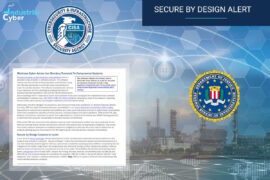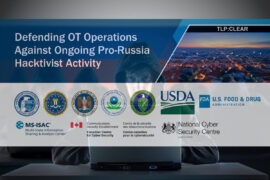EU Council approves EU Space Strategy for Security and Defence, improving response to space threats

The European Council has approved conclusions on the initial EU Space Strategy for Security and Defence. The Council emphasized the EU’s enduring dedication to international law and the values and guiding principles established within the United Nations framework. Additionally, EU member states have reaffirmed their readiness to continue working to establish norms, rules, and principles of responsible behaviors across the full range of space activities.
According to a statement released Tuesday by the European Council, it welcomed the new strategy, supported its main avenues, and proposed to increase the EU’s understanding of space threats. The agency will work through a yearly classified analysis and strengthen military and civilian intelligence services on space security; enhance the resilience and protection of space systems and services, acknowledging the Commission’s intention to propose an EU space law; and better respond to space threats through space domain awareness information, a dedicated toolbox for EU joint responses, and further development of exercises.
Additionally, the strategy works to enhance the use of space for security and defense purposes by better integrating the space dimension into the planning and conduct of Common Security and Defence Policy (CSDP) missions and operations; by strengthening the EU Satellite Centre (EU SatCen); and by developing space services for governmental use at EU level, including by building on a pilot project proposed by the Commission on a new EU Earth observation governmental service.
Finally, the Council reaffirmed the EU’s commitment to address these challenges in outer space through international cooperation and collaboration, including through possible new space security dialogues. The Council will follow the implementation of this new strategy by the High Representative and the Commission.
In March 2022, the Council approved ‘A Strategic Compass for Security and Defence’ for a European Union that protects its citizens, values, and interests and contributes to international peace and security. In a geopolitical context of increasing power competition and intensification of threats, in the Strategic Compass EU leaders identified space as a strategic domain and called for an EU Space Strategy for Security and Defence.
The Commission and High Representative presented in March this year a ‘Joint Communication to the European Parliament and the Council on the European Union Space Strategy for Security and Defence.’ The functioning of economies, citizens, and public policies increasingly relies on space-related services and data, including in the field of security and defense, and for the EU’s freedom of action and autonomous decision-making. Space also contributes to achieving the EU’s political agenda, enabling the digital and green transitions, while enhancing its resilience.
The European Council noted in its ‘Council Conclusions on the EU Space Strategy for Security and Defence’ document that outer space is an increasingly congested and contested domain and that the rules-based international order has been increasingly challenged in recent years.
It also recalled that the last Russian destructive anti-satellite missile test in November 2021, which generated a significant amount of space debris, and the cyber-attack against the space telecommunication infrastructure of ViaSat, which took place in February 2022 with the escalation of the Russian war of aggression against Ukraine, both had significant spillover effects, demonstrating that space security, space safety, and cyber are closely interconnected.
The Council conclusion document underscored “that threats to space infrastructure, systems, and services can be an integral part of hybrid strategies combining intimidation, destabilisation, and economic disruption, and can have unforeseeable consequences for a wide range of users.” It also stressed that “such behaviours impact the security and defence of the EU, its Member States, and citizens.”
The agency also recalls that space is key for the EU’s freedom of action and autonomous decision-making in security and defense; and reiterates the importance of space as an operational domain for security and defense, along with land, sea, air, and cyber.
The Council Conclusions document calls upon the High Representative, in cooperation with the Commission, for the capacity-building aspects, and the member states, to develop a dedicated toolbox for EU joint responses to irresponsible and hostile behaviors in the space domain, in close coordination with the member states, complementing the security frameworks already established in other strategic domains and in particular the cyber diplomacy toolbox and the hybrid toolbox, and drawing on the experience gained from the establishment of those toolboxes.
Cyberspace is considered as the fifth domain of warfare, as critical to military operations as land, sea, air, and space. It is a domain encompassing everything from information and telecommunication networks, infrastructure, and the data they support, to computer systems, processors, and controllers.
The EU cooperates on defense in cyberspace through the activities of the European Defence Agency (EDA), in collaboration with the EU cybersecurity agency and Europol. The EDA supports member states in building a skilled military cyber-defense workforce and ensures the availability of proactive and reactive cyber-defense technology.
The EU cybersecurity strategy adopted in December 2020 by the Commission and the European External Action Service (EEAS), the European Union’s diplomatic service, reinforces cyber defense coordination, cooperation, and building cyber defense capabilities. The EU policy on cyber defence, adopted in November 2022 by the Commission and the EEAS, aims to boost EU cyber defence capabilities and strengthen coordination and cooperation between the military and civilian cyber communities.
Last month, the European Commission with the support of the European Union Agency for the Space Programme (EUSPA), launched a call for expression of interest to set up and participate in an EU Space Information Sharing and Analysis Centre (ISAC). The proposal aims to strengthen the security and resilience of the EU space sector through the EU Space ISAC by developing the awareness and capabilities of its members, including large industrial groups. Public entities of relevance for the EU space sector are also welcome to support the creation and participation in the EU Space ISAC.










